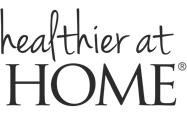




Wise Health Care Choices » Medications
Talk to your doctor and pharmacist about all of the medications you take. These include prescribed and OTC medicines and dietary supplements (vitamins, minerals, herbal products). Heed warnings on labels, too.
-
•Drug-drug interactions. These can make a drug work less, increase the action of a drug, or cause side effects, even harmful ones. For example, unless told to by a doctor, do not take an antihistamine if you take medicine for high blood pressure or a sedative or tranquilizer.
-
•Drug-condition interactions. Some medical conditions make taking certain drugs harmful. One example is taking a nasal decongestant if you have high blood pressure.
-
•Drug and food/beverage interactions. Alcohol should not be mixed with certain drugs. Grapefruit juice should not be taken with certain medicines for high blood pressure and high blood cholesterol.
The “Side Effects/Warnings/Interactions” in Over-the-Counter Medication Safety point out common medication interactions for OTC medicines.



Resources

Agency for Healthcare Research and Quality
Drug
Harmful or Less Effective With*



Acid reducers (for heartburn)
Asthma drug – theophylline. Blood thinner – warfarin. Tricyclic antidepressants, such as Elavil and Pamelor.

Antibiotics
Some birth control pills.

Asthma drug – theophylline
Beta-blockers. Caffeine. Cimetidine (in acid reducers).

Some statin drugs to lower cholesterol
Grapefruit juice. Grapefruit.

Nitrates to dilate blood vessels
Cialis. Levitra. Viagra.

Adderall
MAO inhibitors, such as Nardil and Parnate. Allergy to amphetamines. Over active thyroid gland.

Ritalin
MAO inhibitors, such as Nardel and Paranate. Overactive thyroid gland. Seizure disorder.
* This does not include all medicines and foods that can cause harmful reactions with these drugs. Ask your doctor or pharmacist for more information.


2012 © All Rights Reserved - American Institute for Preventive Medicine | Disclaimer | Phone: 800.345.2476 | www.HealthyLife.com


